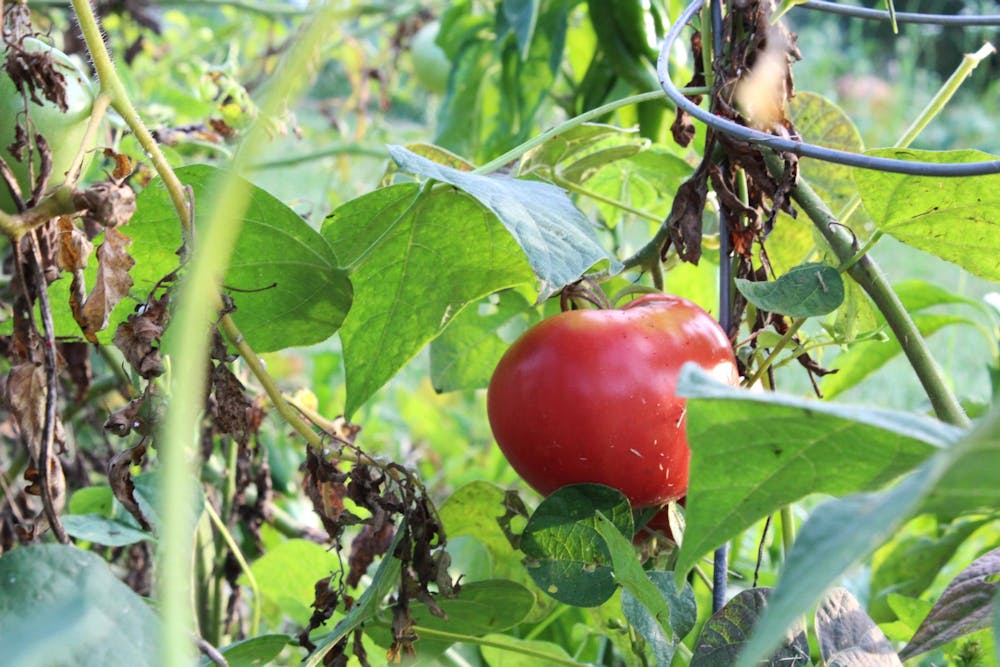A team consisting of Upland locals opened a community garden to promote a fresher way of living.
In summer 2022, a group of local citizens had an idea to connect the community while also bringing about newly harvested vegetation to add to people’s diet.
Thanks to a land donation from Matt Voss, chief operating officer of NearSpace Launch, a community garden was in motion located in the heart of Upland off 79 Railroad St.
When the garden was first in progress during the summer, two students assisted Associate Professor of Sustainable development, Phil Grabowski, in eliminating surrounding grass and coming up with a layout plan.
Students a part of the 2022 Community Plunge helped by laying down mulch where it was needed. The following year, students removed weeds and set up more garden beds.
The garden currently has three to four beds that can grow produce.
Grabowski and his students then set up barrels attached to gutters to collect rainwater that would be attached to a drip irrigation system.
Lauren Tuttle and Jordan Lake,Marion County master gardeners, expressed how vital volunteers are.
“You have to have volunteers to help with the garden,” Lake said. “Without people helping, it won’t be successful.”
Tuttle and Lake enjoyed the experience of volunteering at a community garden and highly recommend getting involved in one.
“This garden is organically managed,” Grabowski said. “It is a space where people could learn more about gardening.”
A fee structure is not in place yet, but they hope to rent out beds to people who might need it and would be marked as a private gardening bed.
There haven’t been any events showcasing the garden, and the construction on the stem park made it difficult for people to access it.
However, there were people who dropped off bags of leaves to be broken down in compost piles to better the soil.
The community should be on the lookout for upcoming events such as: learning how to plant and prepare a garden in the spring, harvesting in the summer, canning processes and compost piles in the fall. Another idea that Grabowski had was trading and exchanging plants with one another.
“The future goal of the community garden is to get more people to eat more fresh produce,” Grabowski said. “It’s one of the clearest things you could do to improve your health through your diet.”
Gardening doesn’t only improve dietary needs but is also financially more convenient.
Luckily, there are local farms around Taylor University such as Victory Acres and Spencer Farms that offer fresh produce at an affordable price.
Tuttle said small towns in Indianapolis have garden beds set up between the road and the sidewalk meant for people passing by to grab produce if so desired.
“The master garden at the Indy Fairgrounds harvested over 3,000 lbs. of produce, which they then donated to the local food pantry,” Lake said.
Grabowski believes that the spread of fresh ingredients within communities starts with people willing to learn and put in the work.
Volunteer work is highly encouraged by Grabowski. All that is needed is an email expressing interest. People interested can email Phil Grabowski at philip_grabowski@taylor.edu.





